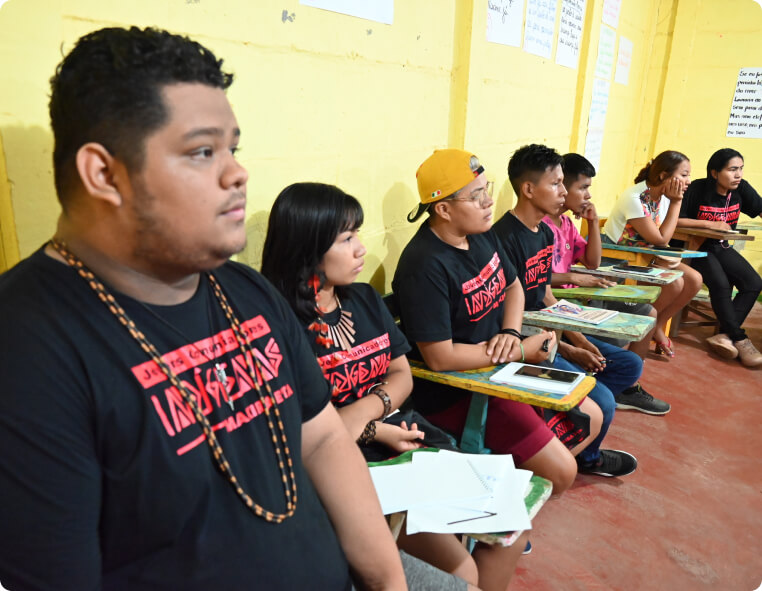


SETA was born from the history of organizations that already work with social transformation in the country and that have national and international reach, in addition to collaboration and direct connection with black, indigenous, education and youth movements. Our Advisory Council brings together names that inspire, guide and represent our commitment to articulating with the public and private sectors and civil society to implement Brazilian legislation that promotes anti-racist education.
is communicator, activist, DJ and co-founder of Midia India. Comes from a family of indigenous leaders of the Terena people, in Mato Grosso do Sul state, and is a member of the Terena People's Council
is Executive Director of Baobá Fund for racial equity
is President of the Brazilian Association of Black Researchers/ABPN (2022-2024) and National Coordinator of the National Consortium of Afro-Brazilian Studies Centers/CONNEABS (2020-2022)
is General Coordinator of the Latin American Campaign for the Right to Education (CLADE)
is Executive Director of the Marielle Franco Institute and was a fellow of the United Nations International Decade of African Descent (2015-2024)
is Professor emeritus at the Faculty of Education at UFMG
is the Executive Director of PerifaConnection and the founder of Movimenta Caxias. She holds a Law degree from UFRJ, with a focus on the right to the city, land access, and grassroots advocacy. She is also a volunteer teacher at the +Nós Popular Preparatory Course
is a journalist and holds a Master’s degree in Ethnic-Racial Relations from CEFET/RJ. She researches the development of political consciousness and the affirmation of civil rights among Black populations. She also works as a presenter, speaker, master of ceremonies, and moderator
is an Indigenous member of the Baniwa people, co-founder of the Wayuri Network, and a PhD candidate in Communication and Culture at UFRJ (Federal University of Rio de Janeiro). He works in the training of Indigenous communicators in the Rio Negro region and conducts research on the impacts of new technologies on Indigenous communities in the area
We have put together the answers to your main questions into categories. Just click on the subject you are looking for to filter the questions already answered.
Black, indigenous and quilombola girls and young women transform communities and school culture to be anti-racist and equitable. We understand, therefore, that the place of black, indigenous and quilombola girls is at school. Therefore, we will act intentionally to build a transformative educational system that promotes dignity at school.
Educators trained through initial and continuing training programs and supported with educational resources and guidance from education managers. Furthermore, they have the autonomy to incorporate anti-racist and non-sexist educational practices due to institutional recognition of the importance of these themes, with accessible and quality material support.
Subscribe to our newsletter and stay up to date with our activities and opportunities for joint actions.